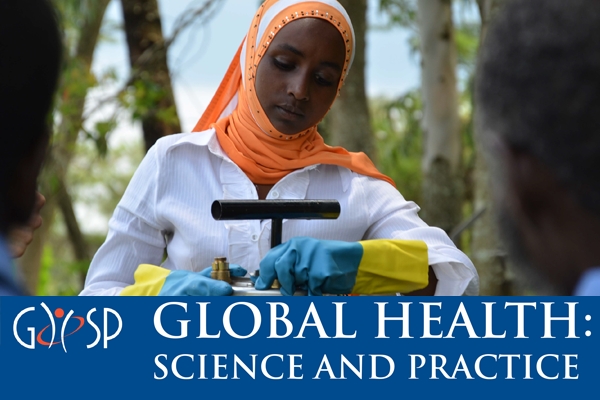According to the December issue of Global Health: Science and Practice, despite its apparent benefits, vasectomy demand among men has plateaued globally. The featured article suggests that the key to demand generation relies on vasectomy-specific messaging and broader social and behavior change communication (SBCC) efforts that engage men in family planning while emphasizing high-quality services and access to the supply side. Increasing vasectomy demand requires linking vasectomy to existing service delivery platforms. This includes mobile outreach, high-quality access to LARCs and female sterilization.
Other featured articles in the issue include:
- New Ways of Approaching Indoor Residual Spraying for Malaria
- Limits of “Skills And Drills” Interventions to Improving Obstetric and Newborn Emergency Response: What More Do We Need to Learn?
- Improving the Safety and Security of Those Engaged in Global Health Traveling Abroad
- Indoor Residual Spraying Delivery Models to Prevent Malaria: Comparison of Community – and District-Based Approaches in Ethiopia
- Pilot Research as Advocacy: The Case of Sayana Press in Kinshasa, Democratic Republic of the Congo
- Benefits and Limitations of a Community-Engaged Emergency Referral System in a Remote, Impoverished Setting of Northern Ghana
- Strengthening Government Leadership in Family Planning Programming in Senegal: From Proof of Concept to Proof of Implementation in 2 Districts
- Limited Effectiveness of a Skills and Drills Intervention to Improve Emergency Obstetric and Newborn Care in Karnataka, India: A Proof-of-Concept Study
- Key Role of Drug Shops and Pharmacies for Family Planning in Urban Nigeria and Kenya
- Referral Systems to Integrate Health and Economic Strengthening Services for People with HIV: A Qualitative Assessment in Malawi
- Social Mobilization and Community Engagement Central to the Ebola Response in West Africa: Lessons for Future Public Health Emergencies
- A Review of 10 Years of Vasectomy Programming and Research in Low-Resource Settings
- Mobile-Based Nutrition and Child Health Monitoring to Inform Program Development: An Experience From Liberia
- Web-Based Quality Assurance Process Drives Improvements in Obstetric Ultrasound in 5 Low- and Middle-Income Countries
- Qualitative Assessment of the Application of a Discrete Choice Experiment with Community Health Workers in Uganda: Aligning Incentives with Preferences
Global Health: Science and Practice (GHSP) is a no-fee, open-access, peer-reviewed, online journal aimed to improve health practice, especially in low- and middle-income countries. Issued four times a year, GHSP includes articles on all global health topics, covering diverse programming models and a wide range of cross-cutting issues that impact and support health systems. The journal is co-published by USAID and the Knowledge for Health Project (K4Health), which is based at the Johns Hopkins Center for Communication Programs.





